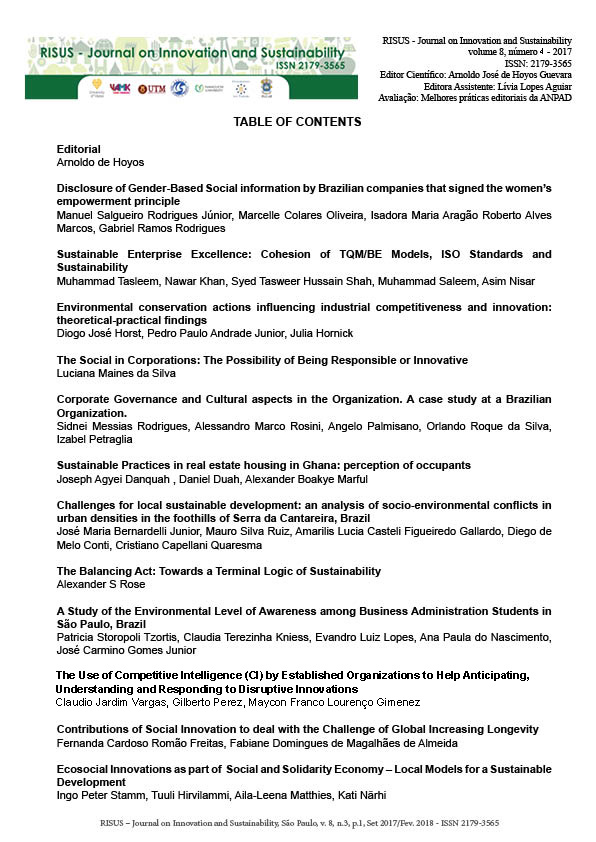Governança Corporativa e as Questões Culturais na Organização. Um Estudo de Caso em Empresa Nacional.
DOI:
https://doi.org/10.24212/2179-3565.2017v8i4p75-97Palavras-chave:
Empresa Familiar, Resistência Cultural e Governança CorporativaResumo
O objetivo desse estudo é o de discutir a importância da Governança Corporativa nas organizações brasileiras e nos demais países. A maioria das empresas familiares apresenta uma gestão restrita aos integrantes e aos interesses da própria família. A empresa familiar, no entanto, pode ser comprometida com o negócio e gerar valor, mas deve responder de forma positiva aos interesses dos investidores. Ocorre que a partir da década de 90 surgiu um ambiente mercadológico mais concorrido e a abertura comercial passou a impulsionar cada vez mais as empresas para participarem da competitividade internacional. As empresas com gestão familiar passam a ter como principal desafio promover a implantação de um modelo de Governança Corporativa para o rompimento de barreiras causadas por uma cultura organizacional ultrapassada, que a família controladora e ou proprietária procura conservar no negócio. O método científico utilizado é uma análise descritiva e também da realização de estudo de caso em empresa nacional. Os princípios da governança - equidade, transparência, responsabilidade corporativa e prestação de contas - são cada vez mais importantes nas atividades empresariais, porém, a sua aplicação nas empresas familiares ainda é bastante restrita. Como contribuição desse estudo, busca-se trazer ao leitor um entendimento maior sobre o tema governança corporativa.Downloads
Publicado
Edição
Seção
Licença
Esta obra está licenciada sob uma licença Creative Commons Atribuição - No comercial - Sin derivaciones 4.0 Internacional
1.O(s) autor(es) autoriza(m) a publicação do artigo na revista;
2.O(s) autor(es) garante(m) que a contribuição é original e inédita e que não está em processo de avaliação em outra(s) revista(s);
3.A revista não se responsabiliza pelas opiniões, ideias e conceitos emitidos nos textos, por serem de inteira responsabilidade de seu(s) autor(es);
4.É reservado aos editores o direito de proceder ajustes textuais e de adequação do artigos às normas da publicação.
1.1 Copyright Statement
This journal is licensed under a Creative Commons Attribution-Non Commercial-No Derivers 4.0 International license.
1. The author (s) authorize the publication of the article in the journal;
2. The author (s) warrant that the contribution is original and unpublished and is not in the process of being evaluated in other journal (s);
3. The journal is not responsible for the opinions, ideas and concepts emitted in the texts, as they are the sole responsibility of its author (s);
4. The editors are entitled to make textual adjustments and to adapt the articles to the standards of publication.


